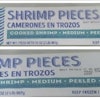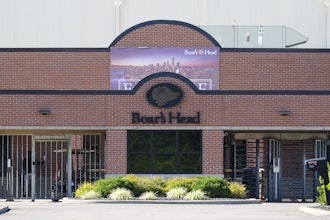DETROIT (AP) — Ford has paid the top penalty of $17.35 million to settle government allegations that the company was slow to recall nearly a half-million SUVs last year.
The fine announced Thursday is linked to the July 2012 recall of nearly 485,000 Ford Escape SUVs from the 2001 to 2004 model years. The SUVs, equipped with 3-Liter V-6 engines, were recalled to fix sticking gas pedals that could cause crashes.
Toyota paid the same amount in a case involving a delayed recall last year. It's the maximum fine that safety regulators are allowed to levy against an automaker.
The National Highway Traffic Safety Administration contends that Ford knew about the problem in May of 2011, but failed to take action until the agency began investigating the Escapes in July of 2012. The probe was started after a teenage Arizona girl died in an Escape crash in January of last year.
NHTSA said that Ford agreed to the recall in late July of 2012, just a week after investigators asked for information on the Escapes. After Ford turned over the data, NHTSA found evidence that Ford responded slowly and told the company it would investigate. Ford then agreed to the fine, NHTSA said.
"It is our job to ensure that manufacturers are held accountable to address safety issues promptly and responsively," NHTSA said. "Recalls are a serious safety matter."
At the time of the recall, NHTSA said it had 68 complaints about the Escape problem, including 13 crashes, nine injuries and one death.
Ford said in a statement that it agreed to pay the fine to avoid a long dispute with NHTSA. Spokeswoman Kelli Felker said in the Escape case, Ford faced a complex situation with a low number of complaints. The problem was compounded by improper repairs made to the vehicles, she said.
"We are absolutely committed to addressing potential vehicle issues and responding quickly for our customers," Felker said Thursday.
On the older Escapes, which are completely different from the redesigned 2013 models, the cruise control cables can snag on the plastic cover atop the engine and cause the gas pedals to stick. For the problem to happen, the pedals must be pushed to or near the floor, and the cruise control cables must have been bent or moved from their original position, Ford said at the time. Cable positions can be changed when the SUVs are serviced, the company noted.
Dealers were to replace the fasteners on the engine cover, raising them so there's plenty of room for the cruise control cable.
NHTSA said when the Escapes were recalled that investigators would look into whether the sticky throttles could have been caused by repairs made as part of a 2004 recall to fix an accelerator cable defect.
Felker urged Escape owners who have not had their SUVs repaired to take them to a dealer as soon as possible.
Last December, Toyota paid a $17.35 million fine for failing to quickly report problems to NHTSA and for delaying a safety recall. At the time, it was the largest single fine ever assessed against a car company over safety defects. In 2010, Toyota paid a total of $48.8 million in fines for three similar violations.
The fines are a tiny fraction of both companies' earnings. Last week Ford said it made $1.23 billion in the second quarter, while Toyota made $3.2 billion in the first quarter.
Toyota said it agreed to pay the penalty without admitting any violation of the law. It also pledged to strengthen data collection and evaluation to make sure it takes action more quickly.






















